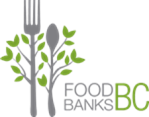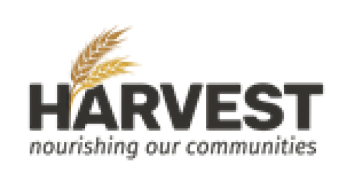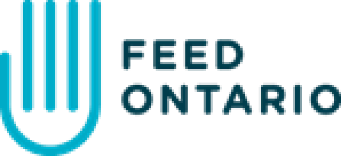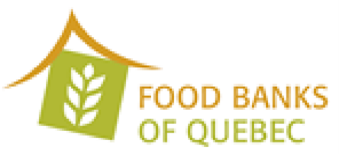Over the past couple of years, Unrelenting food-price inflation is pushing more people to use food banks as the visits to food banks rose to the highest levels in Canadian history in 2023 up 32.1% from 2022 and 78.5% from 2019. Close to two million (1,935,911) Canadians had used the food banks in March 2023 and it has been on the rise ever since. Polite Canada brings to you a list of food bank associations across Canada that have been trying their best to bridge the gap between food and hungry Canadians.
According to the 2023 HungerCount Report, the latest official data reveals that 18.4% of individuals in Canada are currently residing in households experiencing food insecurity. Provincial social assistance remains the most prevalent income source for food bank clients, with those receiving provincial disability support constituting 13.6% of total households accessing food banks. Notably, 17% of food bank clients cite employment as their primary source of income, a significant increase from the 12% reported in 2019. Indigenous individuals, representing 12% of those accessing food banks, surpass the 5% general population representation. Additionally, 26.6% of food bank clients are newcomers to Canada who have been in the country for ten years or less, highlighting the diverse demographic factors contributing to food insecurity.
The Food Banks Canada network is made up of 10 Provincial Associations, 770 affiliate food banks and their 4,750 food banks and community agencies.
British Columbia:

With a vision of a hunger-free British Columbia, Food Banks BC is the provincial association of food banks in British Columbia. Their membership comprises 107 hunger relief agencies throughout British Columbia. Food Banks BC supports its members and other agencies through the provision of resources that assist their efforts to tackle hunger in the communities they represent.
In March 2023, the Food Banks in British Columbia registered 195,925 visits in British Columbia. Among these visits, 62,481 were children. There was a 20.0% change in total visits from 2022 to 2023 and a significant 57.1% change from 2019 to 2023. Notably, 127 food banks reported providing a cumulative total of 224,875 meals and snacks during this period.
Contact Food Banks BC:
12761 16th Avenue, Suite #100
Surrey, BC, V4A 1N2
T: (604) 498-1798 | F: (604) 498-1795
info@foodbanksbc.com | www.foodbanksbc.com
Alberta:

Food Banks Alberta is the provincial association of food banks in Alberta with a mission to strengthen the impact of the Food Banks Alberta network by sharing best practices, innovations and essential resources between members, stakeholders and community partners. Food Banks Alberta comprises over one hundred members across the province.
According to the 2023 HungerCount report, in March 2023, there were 174,311 registered visits in Alberta. Among these visits, 63,729 were for children. There was an 11.9% change in total visits from 2022 to 2023 and a significant 94.1% change from 2019 to 2023. Notably, 150 food banks reported providing a cumulative total of 535,363 meals and snacks during this period.
Contact Food Banks Alberta:
105, 3903 75 Avenue
Leduc, AB T9E 0K3
T: (780) 459-4598
info@foodbanksalberta.ca | www.foodbanksalberta.ca
Saskatchewan:

Food Banks of Saskatchewan serves as the provincial association in Saskatchewan uniting various food banks, collaboratively working to establish, reinforce and enhance connections within the community. The primary goal is to improve services and advocate for individuals facing hunger and food insecurity throughout Saskatchewan. All donations received are allocated to the thirty-six registered food banks across the province. Donors have the option to specify the destination of their contribution directly to a particular food bank. These funds are utilized to swiftly procure and distribute urgently needed items through bulk purchasing power. Additionally, the organization conducts education programs as part of its efforts.
In March 2023, according to the 2023 HungerCount report, there were 55,753 registered visits in Saskatchewan. Among these visits, 22,193 were for children. There was a 24.3% change in total visits from 2022 to 2023, and a significant 49.8% change from 2019 to 2023. Notably, forty-two food banks reported providing a cumulative total of 37,506 meals and snacks during this period.
Contact Food Banks of Saskatchewan
202 Avenue C South
Saskatoon, SK S7M 1N2
T: (306) 664-6565 | F: (306) 664-6563
info@skfoodbanks.ca | www.skfoodbanks.ca
Manitoba:

Since its inception in 1985 as Winnipeg Harvest, Harvest Manitoba has evolved significantly. On its 35th anniversary, the food bank merged with the Manitoba Association of Food Banks, becoming Canada’s fourth-largest food distributor. The Food Bank collects and distributes twelve million pounds of nutritious food annually, benefiting Manitobans. From its Winnipeg Warehouse, the food bank creates Harvest Hampers, feeding over 90,000 individuals monthly, including children, families, and struggling adults.
In March 2023, according to the 2023 HungerCount report, there were 57,351 registered visits in Manitoba. Among these visits, 20,794 were for children. There was a 30.4% change in total visits from 2022 to 2023. Notably, eight food banks reported providing a cumulative total of 187,737 meals and snacks during this period.
Contact Harvest Manitoba:
1085 Winnipeg Avenue
Winnipeg, MB R3E 0S2
T: (204) 982-3663 | F: (204) 775-4180
https://www.harvestmanitoba.ca/
Ontario:

Feed Ontario is the largest collective of hunger relief organizations in Ontario. Together with food banks, industry partners and local communities, Feed Ontario works to end hunger and poverty by delivering fresh and healthy food, developing innovative programming and driving change through research and advocacy.
In March 2023, according to the 2023 HungerCount report, there were 681,292 registered visits in Ontario. Among these visits, 202,914 were for children. There was a 40.1% change in total visits from 2022 to 2023 and a significant 100.6% change from 2019 to 2023. Notably, 499 food banks reported providing a cumulative total of 738,147 meals and snacks during this period.
Contact Feed Ontario:
229 Yonge Street
Toronto, ON M5B 1N9
T: (416) 656-4100 | F: (416) 656-4104
https://www.feedontario.ca/

In Quebec, more than 870,000 people need food assistance every month. Since 1988, the non-profit organization, Food Banks of Quebec, has played a key role in feeding people across Quebec. With thirty-two independent regional members, Food Banks of Quebec serves 1,300 affiliated local community organizations responding to 2.6 million requests for food assistance each month.
According to the 2023 HungerCount report, in March 2023, there were 682,724 registered visits in Quebec. Among these visits, 240,325 were for children. There was a 38.0% change in total visits from 2022 to 2023 and a significant 97.8% change from 2019 to 2023. Notably, 1286 food banks reported providing a cumulative total of 1,910,953 meals and snacks during this period.
Contact Food Banks of Quebec
555, boul. Roland-Therrien
Suite 230
Longueuil (Québec)
J4H 3Y9
T: (514) 344-0789
info@banquesalimentaires.org | www.banquesalimentaires.org

The Provincial Food Distribution initiative in New Brunswick operates with a comprehensive approach, distributing a substantial eleven million pounds of food annually, serving 44,000 visits and providing 53,000 weekly breakfasts. With a robust network of sixty-five members, the program successfully collects products worth ten million dollars each year, ensuring efficient delivery to all food banks in New Brunswick. Supported by a well-maintained 15,000-square-foot food storage warehouse equipped with industrial refrigeration, the initiative contributes significantly to 22,000 monthly visitors to food banks in the region. Beyond this, the program plays a vital role in the community by supplying 5,000 daily breakfasts to schools and actively supporting local farms through a dedicated local food-buying strategy.
In March 2023, according to the 2023 HungerCount report, there were 29,846 registered visits in New Brunswick. Among these visits, 10,322 were for children. There was a 24.7% change in total visits from 2022 to 2023 and a significant 34.0% change from 2019 to 2023. Notably, sixty-five food banks reported providing a cumulative total of 69,918 meals and snacks during this period.
Contact Food Depot Alimentaire
330 MacNaughton Avenue
Moncton, NB E1H 2K1
T: (506) 227-0417
info@nbafb-abanb.ca |https://fooddepot.ca/

Feed Nova Scotia is a registered charity that operates as a pivotal hub within a network of 140 food banks, shelters and meal programs in the province. As one of ten provincial organizations affiliated with Food Banks Canada, a national charitable entity representing the food bank community nationwide, Feed Nova Scotia is committed to fulfilling its mission with the support of the community. Unlike a traditional food bank, Feed Nova Scotia serves as a vital collection and distribution point, connecting those in need with the appropriate resources. While it does not directly distribute food, the organization offers assistance in finding support through our Find Food tool.
According to the 2023 HungerCount report, in March 2023, there were 32,498 registered visits in Nova Scotia. Among these visits, 10,039 were children. There was an 8.8% change in total visits from 2022 to 2023 and a significant 26.8% change from 2019 to 2023. Notably, 130 food banks reported providing a cumulative total of 86,925 meals and snacks during this period. 5 In the 6 months since March, visits to Feed Nova Scotia food banks have increased significantly. As of September 30, cumulative visits (Jan 1 – Sep 30) were 26% higher than they were for the same period in 2022.
Contact Feed Nova Scotia:
67 Wright Avenue
Dartmouth, NS B3B 1H2
T: (902) 457-1900 | F: (902) 457-4500
communications@feednovascotia.ca | www.feednovascotia.ca

The Upper Room Hospitality Ministry is a member of the Canadian Association of Food Banks and organizes the distribution of food to other food banks and soup kitchens in the province through the PEI Food Banks.
The Upper Room Hospitality Ministry was established in 1984 when the Soup Kitchen first opened its doors. The Soup Kitchen provided hot meals for those in need in the Ch’town area. The organization relies exclusively on donations of both food and funds. Many local farmers, businesses, churches, groups and individuals supply the Upper Room with non-perishable food items, fresh meat, veggies and fruit, as well as financial donations. This non-profit charity is run by a Board of Directors composed of members of the local community. The board collaborates with staff and volunteers to raise funds, organize food drives, and raise awareness about the work and requirements of the charity as it strives to help those less fortunate. The Upper Room is a member of the Canadian Association of Food Banks and organizes the distribution of food to other food banks and soup kitchens in the province through the PEI Food Banks.
According to the 2023 HungerCount report, in March 2023, there were 4,212 registered visits in Prince Edward Island. Among these visits, 1,420 were children. There was a 26.9% change in total visits from 2022 to 2023 and a significant 42.36% change from 2019 to 2023. Notably, 130 food banks reported providing a cumulative total of 4,657 meals and snacks during this period.
Contact P.E.I. Association of Food Banks:
33 Belmont St.
Charlottetown, PEI C1A 7M8
T: (902) 892-7092 | F: (902) 628-2054
foodexchangepei@gmail.com | https://www.urhm.org/

Restructured in 1992, the Community Food Sharing Association is the pivotal agency for food distribution to the hungry in Newfoundland and Labrador. A registered charity, the Community Food Sharing Association partners with sixty-two food banks in the region and is governed by a board of twelve dedicated and committed volunteers from all walks of life.
In March 2023, according to the 2023 HungerCount report, there were 15,425 registered visits in Newfoundland and Labrador. Among these visits, 5,305 were children. There was a 12.4% change in total visits from 2022 to 2023 and a significant 44.1% change from 2019 to 2023. Notably, sixty-two food banks reported providing a cumulative total of 24,844 meals and snacks during this period.
Contact Community Food Sharing Association:
21 Mews Place,
St. John’s, NL A1C 6J9
T: (709) 722-0130 | F: (709) 722-1611
cfsa@nl.rogers.com | https://www.cfsa.nf.net/
Food bank usage in Canada is at an all-time high, with a staggering 78.5% increase compared to pre-pandemic levels in 2019. Last year alone, hundreds of thousands of people turned to food banks for assistance. However, this overwhelming demand is putting a significant strain on food banks across the country. To ensure that Canada’s food banks can continue to provide much-needed support to those in need, we all must do our part and donate generously. You can consider helping food banks by volunteering or supporting them through donations to help them continue to be there for everyone who needs them when they need them most.

